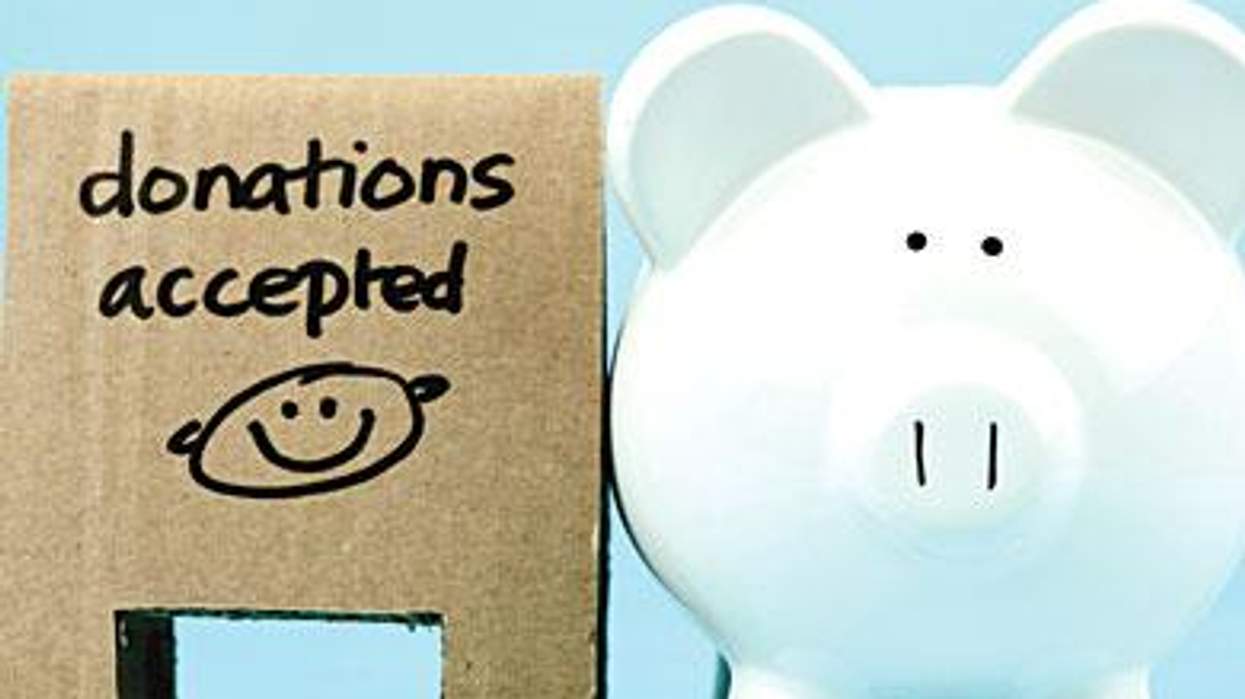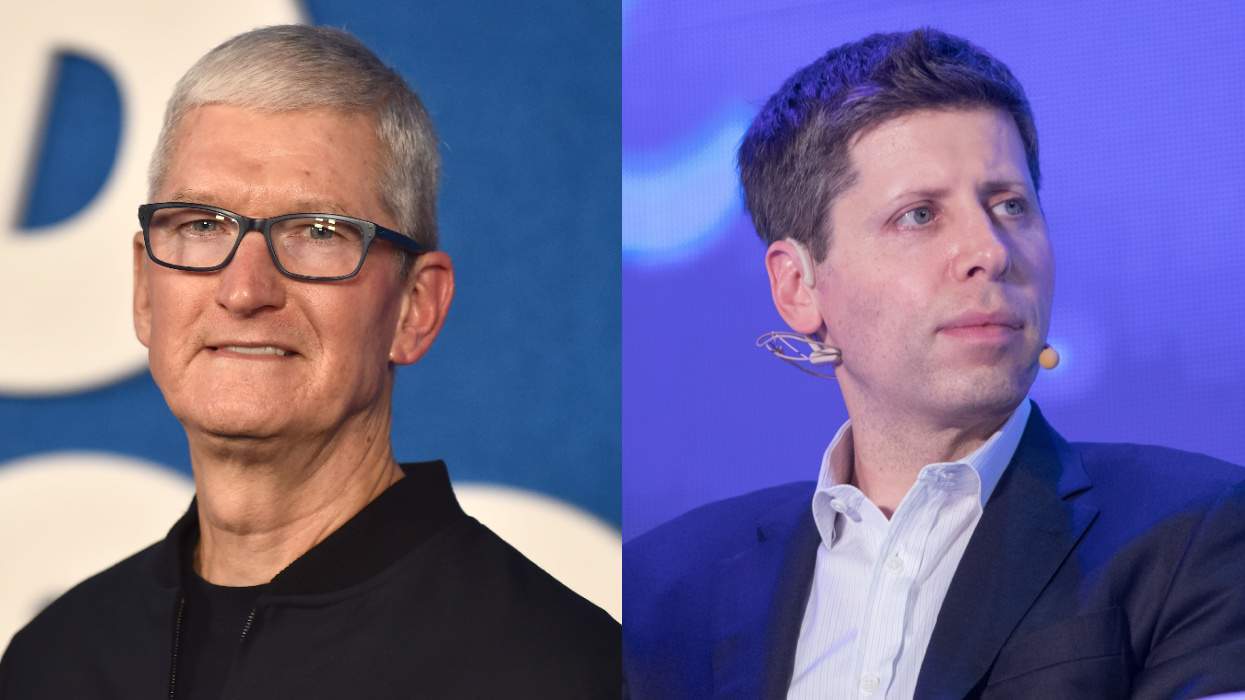I repeatedly hear and see criticism of LGBT organizations and their leaders. The chatter machine gripes about why the Defense of Marriage Act hasn't been repealed yet, why transgender persons are not always included in proposed legislation, and even why there is a glut of gay charity summer pool parties.
LGBT people sure like to talk about the work of gay social justice groups; but far too often, they criticize without doing much to help.
While serving on the board of directors for Equality California for the last few years, and while helping support other groups financially or otherwise, I found myself immersed in dialogue about the LGBT rights movement. I'm all for constructive criticism. No entity or person is beyond reproach, and feedback from the community is always good. But much criticism comes from people who donate no money to any LGBT group (let alone contribute time to serve).
In 2010, less than 3% of LGBT adults in the U.S. gave money to any national LGBT organizations; the number of donors who gave $35 or more to LGBT non-profits dropped 12%. These disheartening statistics were reported by the Movement Advancement Project in its recently released 2011 National LGBT Movement Report. (Fortunately, the report found LGBT organizations remain fiscally healthy due to support from other sources.) If the LGBT community wants progress toward full equality, the other 97% of us need to financially support the organizations that fight our fights.
With the holiday season and tax year-end upon us, now is the perfect time to contribute and let your money talk for you.
Why don't LGBT people give money? Let's debunk the most common reasons I hear.
I can't afford it.
That's a legitimate concern in today's tight economy. And most people cannot afford the larger amounts that LGBT organizations historically favor for their marquee fundraising events. But certainly far more than 3% of the LGBT adult population can afford to give $35, $50 or even $100 a year. Give up a few more cocktails; your waistline will appreciate it and so will your local or national LGBT group. With the rise of email and online solicitations, organizations welcome small donations.
I give with my time, not with my money.
Let's fully applaud everyone who gives their time to serve LGBT rights in some fashion. Our movement needs passionate volunteers, and there's a good argument that donating time is more meaningful than just writing a check. But if you can give time and cash, that's even better. No matter how many volunteer hours an LGBT organization receives, it still needs money to do its work.
Someone else will give.
This notion rests on civic laziness, the belief that someone else will create for you the world that you want. It's a sad state of affairs when we ask our straight allies to donate to our cause while less than 3% of LGBT adults do the same. It's even a sadder state when you realize that antigay opponents routinely outspend (by multiples) our LGBT groups.
My contribution to certain organizations is not tax deductible.
Some of the most important work to advance LGBT equality is done by political advocacy groups that do not qualify as 501(c)(3) charitable organizations. For these entities, raising money can be more difficult but they need our monetary support to fight at the legal and political front line. Moreover, the political advocacy groups typically have a tax-exempt sister entity. (For example, the Human Rights Campaign has the HRC Foundation; Equality California has its Equality California Institute.) Still, gay dollars still do not flow enough to the tax-exempt organizations. And for the many LGBT groups that do in fact hold 501(c)(3) status (such as the Gay, Lesbian & Straight Education Network), there is little excuse for not donating to their charitable work.
I don't agree with a particular organization or its leadership.
This can be a fair point. You will not always agree with every organization's mission, tactics, results or leaders. You should not support groups that do not win your confidence. But surely, there must be some LGBT entity you can get behind. Disliking one organization is no excuse for abstaining from all of them.
Too much of my money will be spent on the non-profit organization's overhead.
This raises another legitimate issue. You should rightfully expect a good portion of your money to advance the organization's critical mission. At the same time, funds are needed to keep offices open and to pay the staff who works tirelessly for our rights. Do your homework to ensure you are comfortable that your chosen LGBT group will use your money efficiently. But don't refuse to donate merely because non-profit entities must pay for overhead.
I can't decipher between all the LGBT organizations.
For anyone who's ever had this thought, I hear you. There are indeed many LGBT groups, and some would say too many. They all are well-intentioned, and it can be difficult for the casual observer to figure out the differences between all the acronyms and often overlapping mission statements. You may also be asked by multiple friends to give money to each of their respective causes. Like me, you may not want to play favorites. But you might have to. Think about which LGBT issues means the most to you. It could be marriage equality, immigration fairness, adoption rights, HIV/AIDS research and prevention, ending LGBT youth bullying, transgender rights, workplace advocacy, or LGBT arts. Find the one, two or even three organizations that best advance your causes of passion, and give them some cash.
There are many reasons why it's easy to keep your wallet closed. But there are so many better reasons to open it. Like me, you have hopefully marveled at the LGBT equality advances of the past decade. LGBT people are increasingly protected from discrimination. Gays and lesbians can finally serve openly in the military. Same-sex couples can adopt children in most states and can now even marry in a few states. These and so many other LGBT rights would not have been achievable without the work of many social justice groups and donors who helped fund their work.
Recently, I attended a wedding celebration for my good friend Albert and his now-husband. They live in Washington, D.C., and could take advantage of the District's recognition of same-sex marriage. I watched them bring their respective relatives from Hong Kong and the United States together to create a bigger international family. I saw many smiles and much love. And I was reminded of the real-life reasons why LGBT organizations exist to speak for us.
There remains much work ahead. To achieve a nation of full equality, it will take far more than the financial support of 3% of the LGBT population. To you in the other 97%, I call upon you. Keep using your voice to speak up for LGBT rights, but it's time to also let your money talk.















Charlie Kirk DID say stoning gay people was the 'perfect law' — and these other heinous quotes
These are some of his worst comments about LGBTQ+ people made by Charlie Kirk.